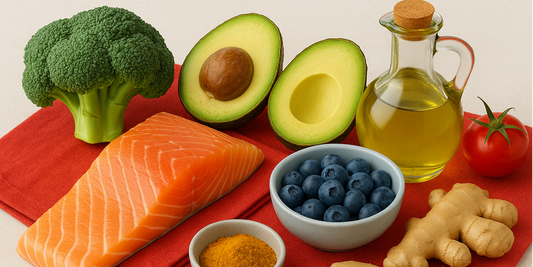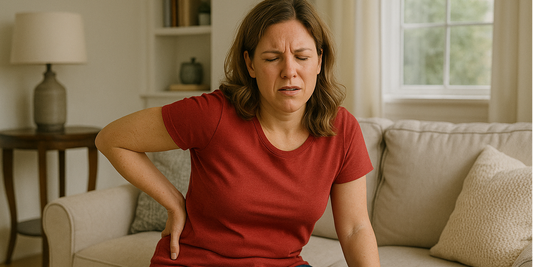
Everyone Needs Different Calories. What Are the Different Factors?
Share
Calories. It’s a word that is used so often when we talk about maintaining health and wellness, eating healthy that most of us don’t even know what it means anymore. Much less how many of those things we need to consume!
Nevertheless, calories are important. They tell you how much – and what kinds – of food you need to eat to stay nourished without gaining too many excess pounds.
To help you develop a caloric eating plan that is adapted to your unique physiology, read on and get a basic understanding of how calories work, plus learn about the factors that affect calorie needs.

Understanding Calories
What exactly is a calorie? Put simply, it’s a measure of how much energy you can gain from foods and beverages.
Based on dieting fads of the past that call on people to restrict their caloric intake as much as humanly possible, you may have gotten the impression that calories are bad. But they’re not. They’re only a problem if you consume more calories than your body is able to use for energy.
When you have excess calories, your body has no use for them, so it stores them as fat throughout your body. It accomplishes this by building more fat cells or expanding those you already have.
It’s also important to note that we can’t just look at calories to determine if we should eat a particular food or drink a certain beverage. We must also look at other factors, like how much sugar or protein is in it.
A cheese stick, for example, typically contains 113 calories. A chocolate chip cookie has 138 calories, just 25 calories more. Which one do you think contains nutrients that benefit your health, such as protein, and which one do you think has almost zero nutritional value whatsoever?
That’s why eating based solely on calories is a mistake. Just because something has a lot of calories doesn’t mean it’s unhealthy. Similarly, just because something has a low number of calories doesn’t mean it will provide you with any nutrition that your body can use to build cells, keep up your energy, and stabilize your blood sugar.
How Many Calories Do You Need?
But the fact remains that we still need calories. The question is, how many? It depends. Let’s take a look at six different factors that impact your ideal caloric intake.
Age
Your age is one of the things that will determine how many calories you need to consume.
According to the Dietary Guidelines for Americans, children need the lowest number of calories. But by the time they reach their late teens, their needs will have increased significantly. Throughout their 20s, 30s, and 40s, the number will go down slightly and then stabilize. By their 50s and 60s, the number will decrease again, but only slightly, and then remain stable to the end of life.
Gender
Gender is another important thing to consider for calories. In most cases, men need more calories than women. This is because men’s bodies are typically bigger. (Again, though, this is a generalization.)
For example, an active 25-year-old man needs about 3000 calories daily, whereas an active 25-year-old woman needs about 2400 calories per day.
Metabolism
Every human being has a metabolism. This term covers the chemical processes going on inside your body to keep you alive, including the process that converts food to energy.
Some people have a fast metabolism, while others have a sluggish one. This is why some people appear to be able to eat as much as they want and maintain their weight, while other people will go off their diet one time and gain a couple of pounds.
Body Shape
Your body shape can determine how many calories of different types of nutrients you need to consume to meet your health goals. There are three body shapes: ectomorph, mesomorph, and endomorph. According to The Fitness Junkie Blog, each of these needs to eat a certain number of macronutrients – protein, carbohydrates, and fats – daily.
Exercise Level
Your level of exercise is massively important to how many calories you need per day. If, for example, you’re sedentary and don’t work out at all, then you need significantly fewer calories than, say, someone who walks, jogs, or runs on their Redliro walking pad treadmill every day.
Genetics
Finally, we can’t forget about genetics. If you’ve inherited a certain body type, metabolism, or health issue, these things will definitely impact how many calories you need and how many you’re able to process.

What Foods Have the Most Calories?
In general, the foods with the most calories are going to be proteins, fats, and some carbohydrates – particularly those with sugar and white flour, like baked goods and desserts.

What Foods Have the Least Calories?
Fruits and vegetables have the least number of calories. There are also some proteins and carbohydrates that have lower calories, such as eggs, cod, oats, barley, rye, and buckwheat.
Summary
As you can now tell, there is a lot that goes into determining how many calories is right for you to take in on a daily basis. That’s why it’s important for you to work closely with your physician to create an eating plan that factors in your age, gender, metabolism, body shape, exercise level, and genetics. This is the best way to make sure you take in enough high and low-calorie foods to meet your nutritional and wellness goals.



